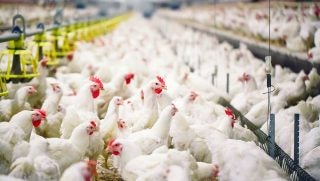Will land prices continue to drop? Farmers National Company said it really depends on a number of factors in 2017.
“This winter, questions abound as to the direction of commodity prices, interest rates, inflation, challenges in the world economy, weather, and U.S. tax law,” said Randy Dickhut, senior vice president of real estate operations for Farmers National Company, in a recent release. “Buyers of ag land are asking if it is an opportune time to make a purchase of a farm or ranch, while sellers are asking if the market dynamics are indicating that it is good time to sell land. Depending on location, quality of land and other factors, our agents report seeing regions and local areas where land prices are stable to somewhat strengthening post-2016 harvest. Then there are other areas where land values have continued to decline.”
Dickhut said that in the past three years, agricultural landowners in many regions across the country have seen a decline in profits, which also pushed land values lower.
According to a recent Iowa State University study, land values have dropped for the past three years – something that hasn’t happened since the 1980s farm crisis. The study estimates that Iowa farmland values have fallen nearly 6 percent, and are now about $7,183 per acre on average, compared to last year’s $7,633 an acre. Since 2014, land values have been declining in Southwestern Minnesota– this year the decline across 14 counties averaged 2.6 percent. The 2016 Purdue Farmland Value Survey reported the top- and average-quality Indiana farmland fell by an average of 8.2 percent from 2015, and poor-quality farmland by 8.7 percent. Top land fell from $9,266 per acre to $8,508, average land from $7,672 to $7,041 and poor land from $5,863 to $5,353.
A key factor impacting land prices will be interest rates, Dickhut said. Grain and livestock prices affecting farm and ranch income also will influence land values.
“Foreign trade policy and its effect on agriculture will be closely watched over the next few months. Potential changes in tax laws could affect estate taxation and capital gains rules that in turn influence buying and selling decisions,” Dickhut said.


